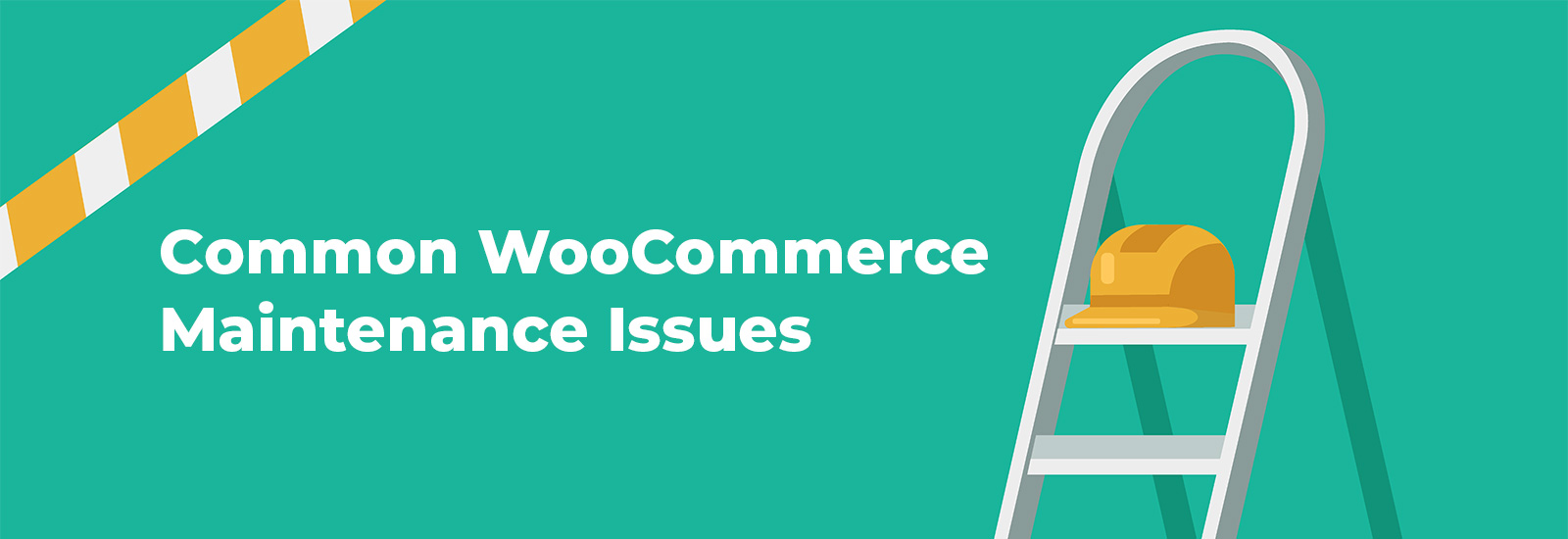 WooCommerce continues to be one of the most popular e-commerce platforms, due to its flexibility and seamless integration into WordPress. However, the one downside of WooCommerce is that the online store requires on-going maintenance and monitoring for security and performance issues.
WooCommerce continues to be one of the most popular e-commerce platforms, due to its flexibility and seamless integration into WordPress. However, the one downside of WooCommerce is that the online store requires on-going maintenance and monitoring for security and performance issues.
If you aren’t updating the WordPress plugins on a monthly basis and monitoring the site database, you may experience one of these common WooCommerce maintenance issues.
Common WooCommerce Maintenance Issues
1. WooCommerce Plugin Conflicts
Keeping your WordPress themes, plugins and core up to date is beneficial for your site’s security, overall performance and WooCommerce functionality. Out of date themes and plugins open the door to security vulnerabilities and can cause conflicts to occur.
Theme and plugin conflicts are one of the biggest causes of site issues. The more plugins you have running, often the higher the chances of a theme or plugin conflict arising. Code quality is of great importance and it’s generally best practice not to use too many plugins and always disable or remove any plugins you don’t need.
To ensure a plugin doesn’t cause performance problems, you can run performance tests – preferably on a staging site – with and without the plugin installed. This will allow you to gauge whether any performance impact is worthy of the functionality provided by the plugin.
It is also recommended to test themes as some third-party themes have been known to include buggy code and costly database queries on the back-end and excessive JavaScript and poorly optimized assets on the front-end.
2. Limited Hosting Resources
Choosing a high quality hosting company that optimizes your hosting environment for WooCommerce is significant. WooCommerce requires quite a bit of RAM and processor time.
If your hosting doesn’t provide sufficient resources, your online store will get bogged down under load. A good hosting platform should support the latest versions of PHP and MySQL as well as scan for malware and junk files. Since all WooCommerce websites are built on WordPress, consider investing in a hosting service configured for WordPress sites and 24/7 security monitoring.
3. Website Database Overload
The database of your WooCommerce site stores plenty of information including products, orders, settings and more. The size of your database can affect your website performance as loading times can slow down due to database issues.
You can perform some clean-up manually, using your cPanel, or consider using a plugin such as WP Optimize that will automate the optimization processes. These plugins remove the revisions present in your database and delete duplicate entries.
A final general rule of thumb is to make sure that you have regular backups for your site, database and files. Keep your online store running smoothly with WooCommerce maintenance performed by an expert development team.
While WooCommerce websites require some extra care, the benefits of WooCommerce in terms of customization and flexibility outweigh the maintenance and support. If you have any questions about whether to invest in a WooCommerce compared to Shopify e-commerce website, feel free to reach out to our team.


